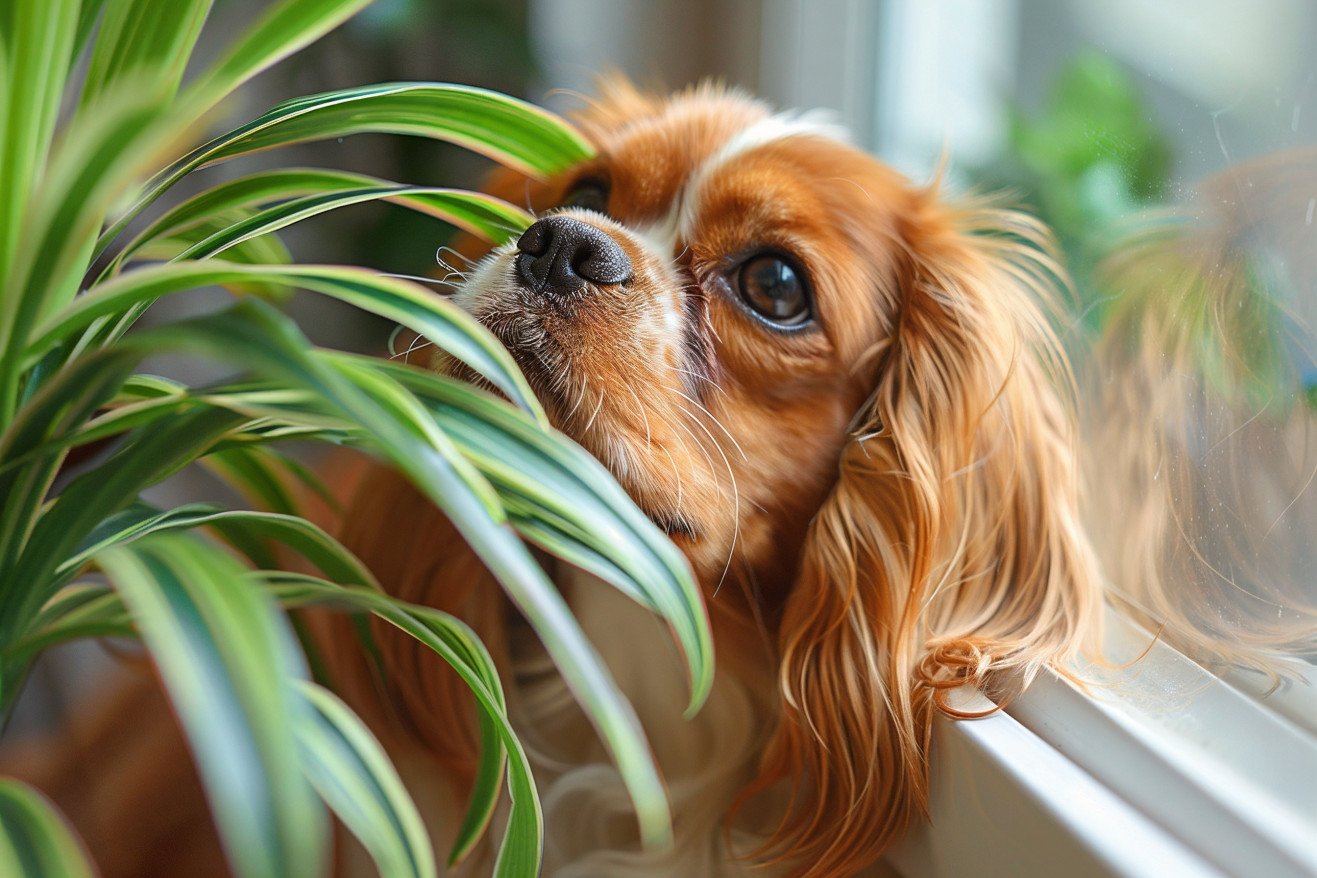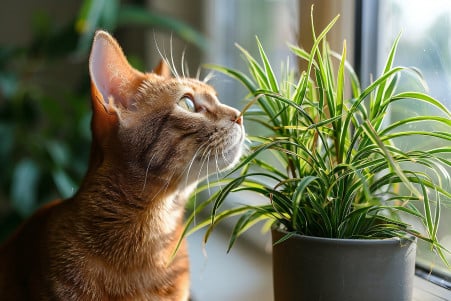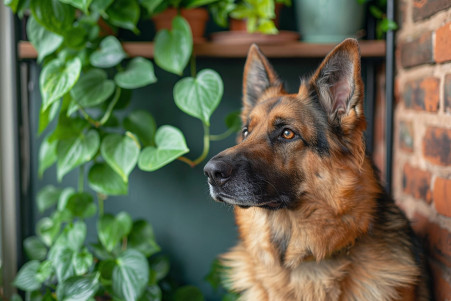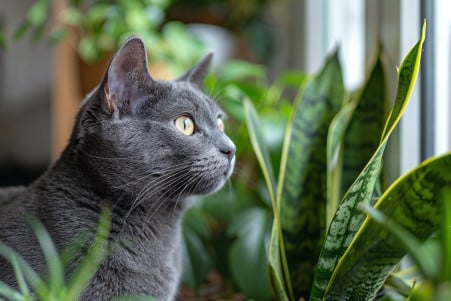Can Spider Plants Make Dogs Sick? A Complete Guide
1 May 2024 • Updated 30 April 2024

Spider plants are a common houseplant, but many pet owners worry about their potential toxicity to dogs. Spider plants (Chlorophytum comosum) are mildly toxic to dogs when eaten. Even though non-toxic amounts can lead to vomiting, nausea, and diarrhea in dogs, spider plants are still considered mildly toxic and a dog would have to eat a lot of the plant to experience serious side effects.
This article delves into extensive studies from veterinary toxicologists and animal care professionals to give you a comprehensive understanding of the potential dangers and impact of dogs being exposed to spider plants. Through in-depth analysis of case reports and toxicological studies, you'll learn how to recognize symptoms, what to do, and how to prevent accidental ingestion so you can make sure your dogs stay safe and healthy.
Are spider plants poisonous to dogs?
Signs and Side Effects of Spider Plant Poisoning in Dogs
Dogs that have ingested spider plants may exhibit signs of vomiting, diarrhea, nausea, and upset stomach, according to eHow. These side effects are generally mild and will go away on their own within 24 to 48 hours as the plant is digested and eliminated.
That said, if the side effects are severe or last for a long period of time, such as if the dog is vomiting frequently, has diarrhea with blood, is lethargic, or has a lack of appetite, it could be a sign of a more serious problem and the dog should be taken to the vet, according to the Humane Society Veterinary Medical Association. The severity of the side effects can depend on the amount of the plant that was ingested, the size of the dog, and the dog's overall health.
That said, while the side effects can be uncomfortable, they are generally not a cause for concern unless they are persistent or severe, which can give dog owners the opportunity to monitor their dog's condition before deciding if they need to seek medical attention. By knowing what to look for, you can better assess the situation and determine if your dog needs to see a vet after ingesting a spider plant.
How to Protect Spider Plants From Dogs
To avoid accidental consumption, spider plants should be kept away from dogs using plant stands, shelves, or hanging planters, according to Green Matters. In addition, dogs should be given plenty of exercise, mental stimulation, and toys to prevent them from chewing on plants due to boredom or curiosity, says The Kitchn.
In addition to these measures, pet-safe deterrents such as bitter apple spray and physical barriers can be used to keep dogs away from plants, according to Gardenstead. Finally, training dogs using positive reinforcement to avoid certain areas or not chew on certain objects can be an effective long-term solution.
By taking these steps to keep spider plants out of dogs' reach and prevent them from being interested in the plants, dog owners can enjoy the many advantages of this easy-to-care-for plant while keeping their pets safe.
Are Spider Plants Poisonous to Cats?
As with dogs, spider plants are considered non-toxic and safe for cats in small amounts, according to The Wildest. However, cats can suffer from vomiting and diarrhea if they eat too much of the plant, according to Basepaws.
Cats are more likely than dogs to eat spider plants because they like the texture and the plant contains a chemical that's similar to catnip, according to Gardener's Path. However, it's still best to keep spider plants away from cats or offer cat-friendly plants to avoid any potential problems.
Are Spider Plants Safe for Other Pets?
While there is not much research on the topic, the fact that spider plants are non-toxic to dogs and cats means that they are likely safe for other small animals like rabbits, guinea pigs, and hamsters, according to The Spruce. That said, it's still important to make sure that any pet doesn't eat too much plant material since their digestive systems are not built to handle it.
The potential toxicity of spider plants (or any other houseplant) to pets depends on a number of factors, including the pet's size, whether they have any underlying health issues, and whether the plant has been treated with pesticides, according to The Little Botanical. However, it's best to err on the side of caution and keep spider plants out of the way of all pets while also calling a vet if a pet eats a large amount of the plant, according to Mr. Plant Geek.
Conclusion: A Low-Risk Plant, But Caution is Still Advised
While spider plants are generally considered non-toxic and relatively safe for dogs and other pets, ingestion can still cause unpleasant side effects. According to the Leaf and Paw blog, spider plants contain a chemical similar to catnip that can affect cats in different ways, potentially leading to issues like vomiting or diarrhea if consumed in large amounts.
To avoid any potential issues, it's best to keep spider plants out of reach of pets and provide safe, pet-friendly alternatives, as recommended by Apartment Therapy. If a pet does ingest part of a spider plant, monitor them closely for any concerning symptoms and contact a veterinarian if issues persist or worsen.
With proper precautions and pet-proofing, spider plants can make a beautiful, low-risk addition to homes with furry companions. As The Spruce notes, while spider plants are non-toxic, it's still important to prevent cats and dogs from consuming large quantities to avoid potential gastrointestinal distress.


